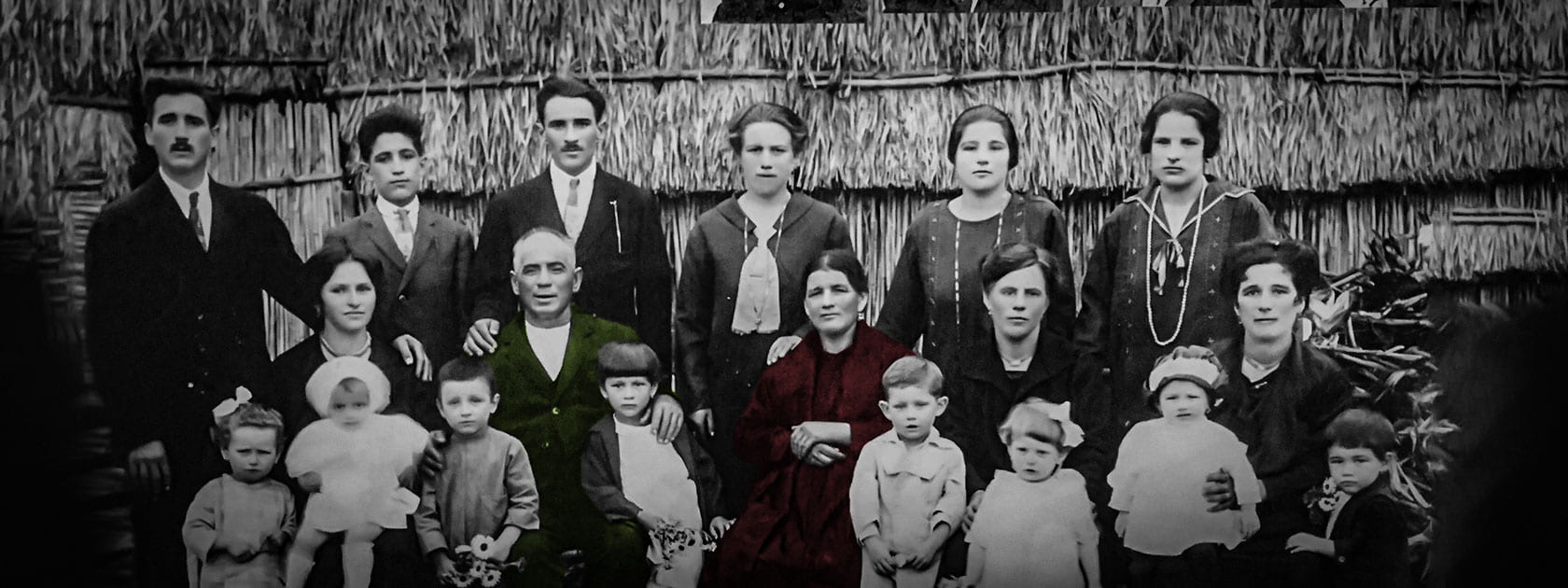Date
October 16, 2011
Maker
Columbus Centre
Accession#
ICEA2011.0074.0001
Interview With Giulietta Doganieri
In her interview Giulietta Doganieri describes her life in Canada during World when her father, Nicola Doganieri, was interned. Nicola was interned for three years at Camp Petawawa, likely because of his involvement with a fascist organization. While Giulietta’s father was interned, her mother cleaned houses as a source of income. Aside from working hard to make ends meet, Giulettta’s mother also had to take care of the children – two of whom were physically disabled. Giulietta recalls accompanying her mother to Petawawa to visit her father, although she does not remember many details of the trip. While Nicola was in the camp, his three-year-old daughter, Anna, died. Like many other children of interned parents, Giulietta says that her father never spoke about his experiences, and that there was a taboo with the children asking questions. Giulietta also states that she didn’t realize that her father was so important to the community and that he helped so many people, as her parents never talked about these activities. She was also unaware of the Italian newspaper that her father ran. Giulietta describes the deep feelings of shame she had regarding her father’s internment, even though he was a good man who helped so many people.
In this opening clip Giulietta Doganieri speaks about her family and their life in Montreal. She also talks about social events at Casa d’Italia.
Giulietta Doganieri speaks about her parents.
Giulietta Doganieri talks about her schooling and attending the Church of the Madonna della Difesa.
Giulietta Doganieri briefly talks about her Italian Canadian identity and describes how people in the neighbourhood got along prior to the war.
Giulietta Doganieri describes how she knew very little about her father’s working life as a child. In this clip she mentions that she only learned of how her father would help those in the Italian community later in life.
Giulietta Doganieri recalls how her father’s internment affected her as a child.
Giulietta Doganieri recalls how she did not talk about her father’s internment with anyone growing up. She describes the shame she felt, even as an adult, as a result of his internment.
In this clip Giulietta Doganieri explains how she never asked her father any questions about his internment and he never spoke about the experience upon his return home.
Giulietta Doganieri talks about her younger sister Anna who passed away while her father was in the internment camp.
Giulietta Doganieri talks about how her mother made ends meet while her father was interned.
Giulietta Doganieri recounts how a local woman bought her Communion shoes since her parents could not afford to buy them for her.
In this clip Giulietta Doganieri talks about her father and mentions his involvement in the local fascio.
Giulietta Doganieri reflects on the internment of Italian Canadians.
In this clip Giulietta Doganieri recalls going to visit her father in Petawawa during his internment.
Giulietta Doganieri talks about how surprised she was to see a photograph of her father published in The Gazette in an article related to this project. She talks about the importance of this project in helping to proclaim her father’s innocence.
Giulietta Doganieri talks about the divisions she perceived in the Italian community after the internment.
Giulietta Doganieri talks about how her mother coped during her father’s internment.
In closing Giulietta Doganieri talks about her father’s character and talks about compensation for the families of the interned.



